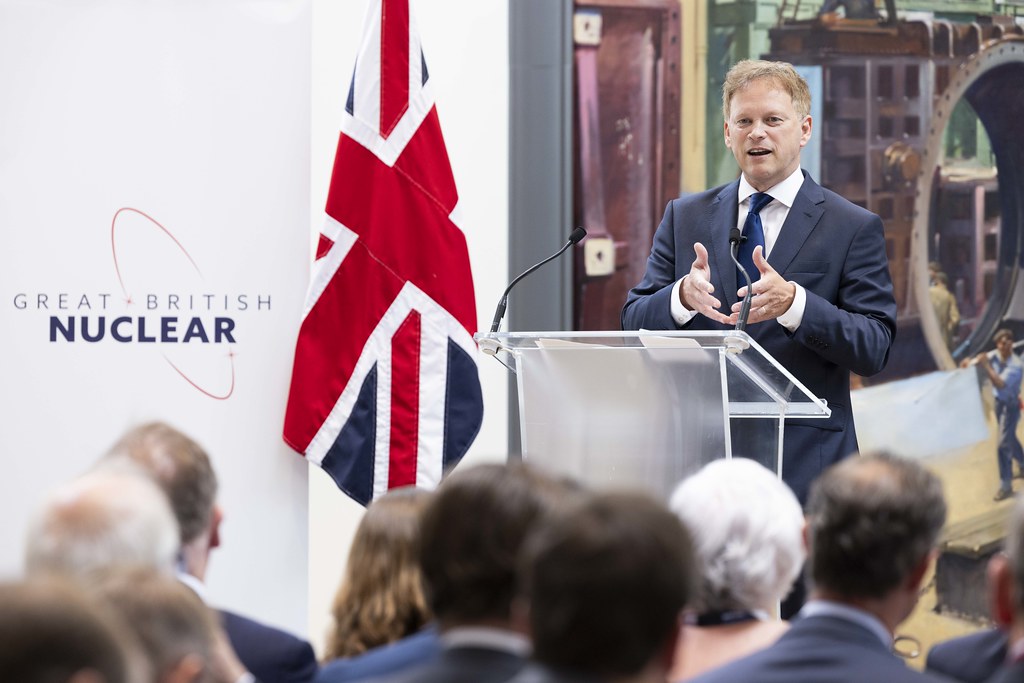Prime Minister Rishi Sunak is today visiting North East Scotland as the government seeks to promote the UK’s energy security and growth, but critics express concern about new oil and gas licenses.
The PM will highlight Scotland’s role in delivering the government’s 2050 net zero targets and underline that it pays a key role in the UK’s energy security.
However, green campaigners criticised the announcement of 100 new oil and gas licenses, and Greenpeace’s chief scientist, Doug Parr, said that the announcement of the Acorn carbon capture and undersea storage (CCUS) project “is going to be based on the continued use of fossil fuels, it’s going to be based therefore on a greenwashing of the sector.”
No amount of carbon capture and storage, which the prime minister is enthusing about today, will make this acceptable
— Doug Parr (@doug_parr) July 31, 2023
https://t.co/tkWszV2gwG
The Prime Minister and Energy Security Minister are also expected to meet with key energy industry figures and companies to discuss bolstering energy infrastructure.
The visit will underline that “Scotland remains a cornerstone of government plans for an energy-independent UK, as well demonstrating what can be achieved due to the strength and scale of UK collective action, in defending the public against global energy supplies which have been disrupted and weaponised by Putin,” Downing St said.
The Department for Energy Security and Net Zero (DESNZ) also released a statement saying that Secretary of State Grant Shapps would meet with “leaders from oil, gas and renewable sectors” to help safeguard the UK’s energy security.
UK carbon capture & storage, or CCUS, could:
— Department for Energy Security and Net Zero (@energygovuk) July 31, 2023
👷♀️ support 50k new jobs in 2030
📈 add up to £5 billion to the economy by 2050
🌎 help us meet Net Zero targets
But what is it? And what do elephants & CCUS have to do with each other? 🐘🇬🇧
Watch to find out⬇️ pic.twitter.com/WFIJCau9Z3
The carbon capture and storage project was welcomed by Shell, however. Simon Roddy, senior vice president of Shell’s UK Upstream business, said: “This is an important step forward for one of the UK’s leading CCS clusters. The Acorn Project is a central part of plans to decarbonise North Sea operations, and to store emissions from other parts of Scottish industry. As Technical Developer, we bring Shell’s global experience of CCS and the delivery of major projects.”
Shell made a profit of almost £4 billion in Q2 2023, down from a peak of £8.9 billion for the same period in 2022.
Shapps “will announce investment plans to put powering up Britain from Britain first – making the most of our country’s resources and reducing reliance on imported fossil fuels, by backing our oil and gas industry, investing in the latest clean technologies and isolating Putin’s regime from global energy markets.”
DESNZ’ statement also promised that the week would see the Energy Security Minister show support for British innovation in “new industries such as carbon capture and storage, and for cutting edge renewables across the country.”
Minister Grant Shapps said: “Energy security is national security. Since Putin’s illegal invasion of Ukraine the Government has driven Russia from our energy market, paid around half of a typical family’s energy bill and grown our economy by driving forward major energy projects.”
The Downing Street and DESNZ statements suggest a week of talking up what the government sees as the progress already made towards net zero targets, but does not suggest any major new announcements.
The Conservative Party have started to suggest that it is the party of motorists, following the recent Uxbridge byelection where Labour’s car tax policies in London featured heavily.
Green campaigners will be disappointed that the government is again talking up support for the North Sea oil and gas industries, which have been declining in output for years. In June, the ECIU warned that the slow pace of transition from gas boilers to heat pumps could see the UK spending £9 billion more a year on gas by the 2030s.
Nigel Pocklington, chief executive of Good Energy said: “If the government were truly committed to insulating the UK from volatile global gas prices, they would be singularly focussed on getting us off gas altogether. Replacing our gas heating with electricity, ramping up renewables and transitioning away from fossil fuels — that is what energy security looks like.”
Jess Ralston, head of energy at the Energy and Climate Intelligence Unit (ECIU) said: “Government is currently subsidising oil and gas companies to drill more in the North Sea. This will not bring down bills as there isn’t enough gas to move the dial on international market prices and the oil and gas industry’s own estimates show the North Sea will continue to decline no matter what the government policy is.






